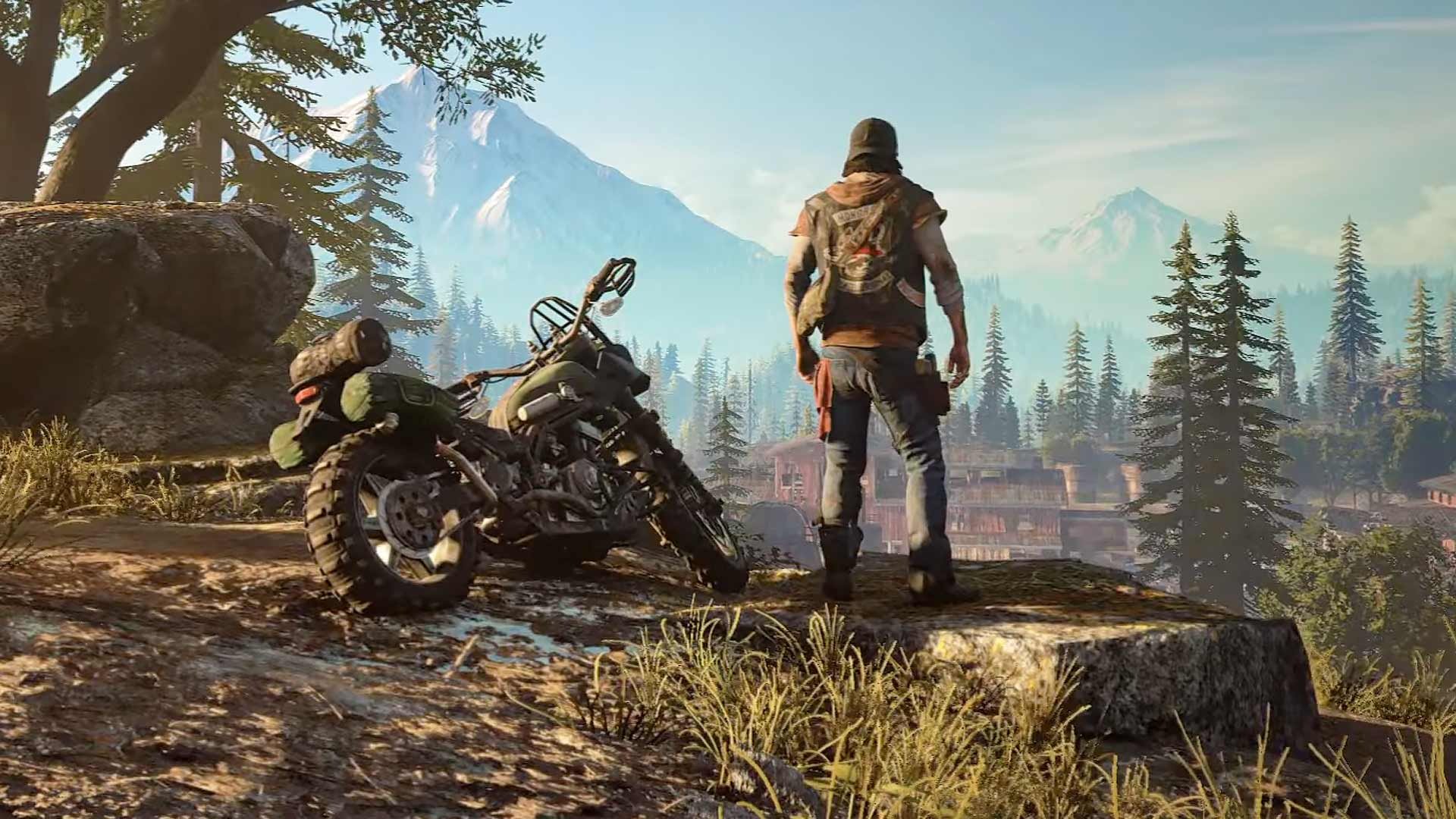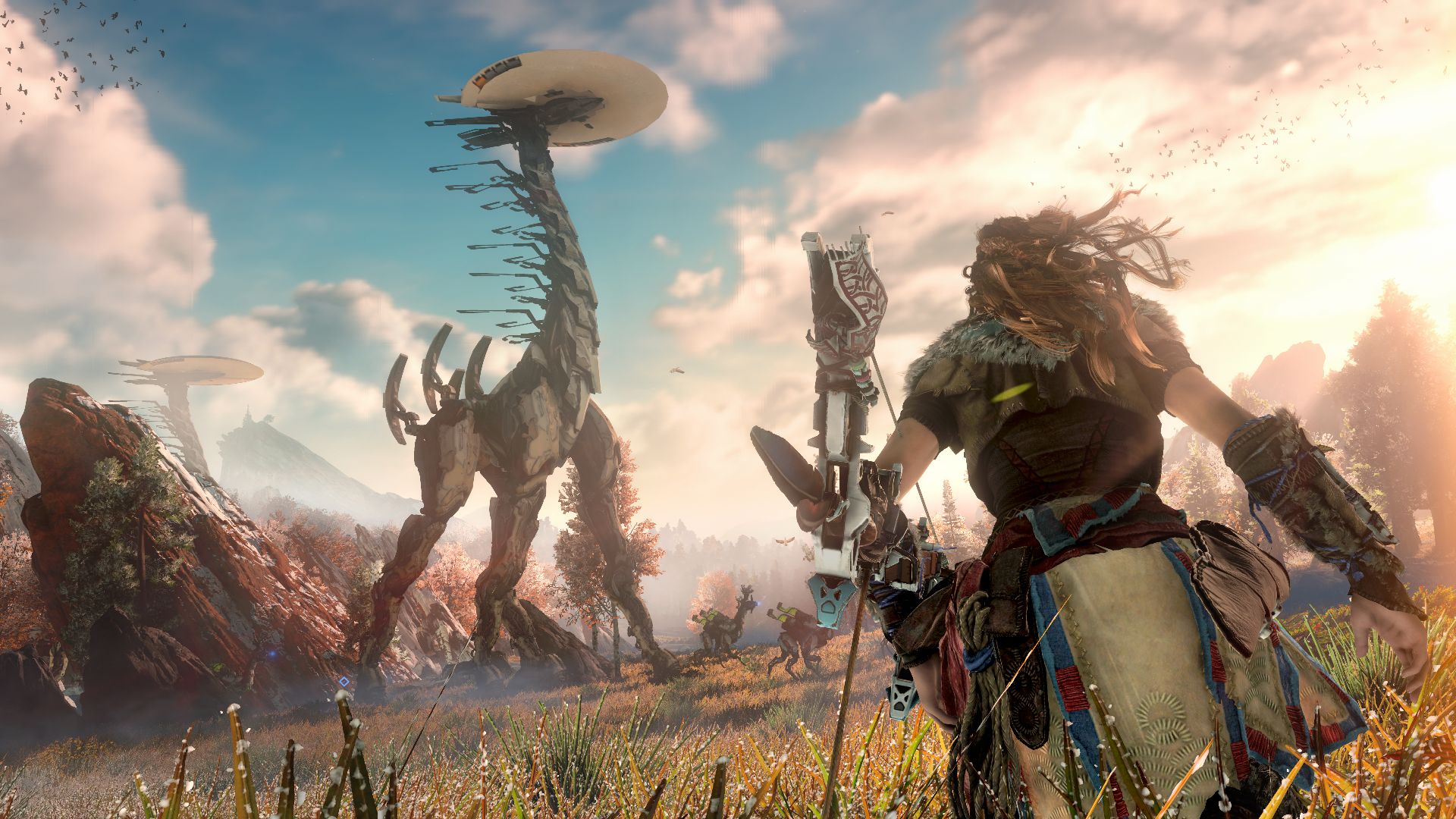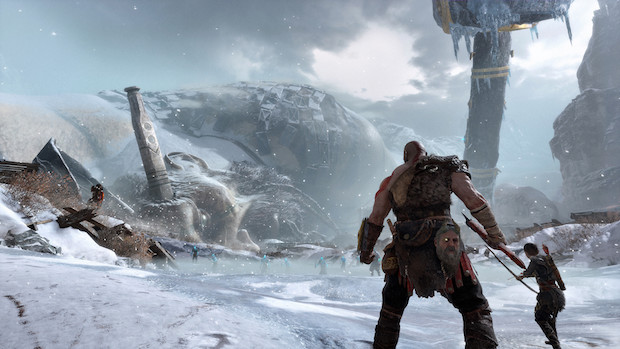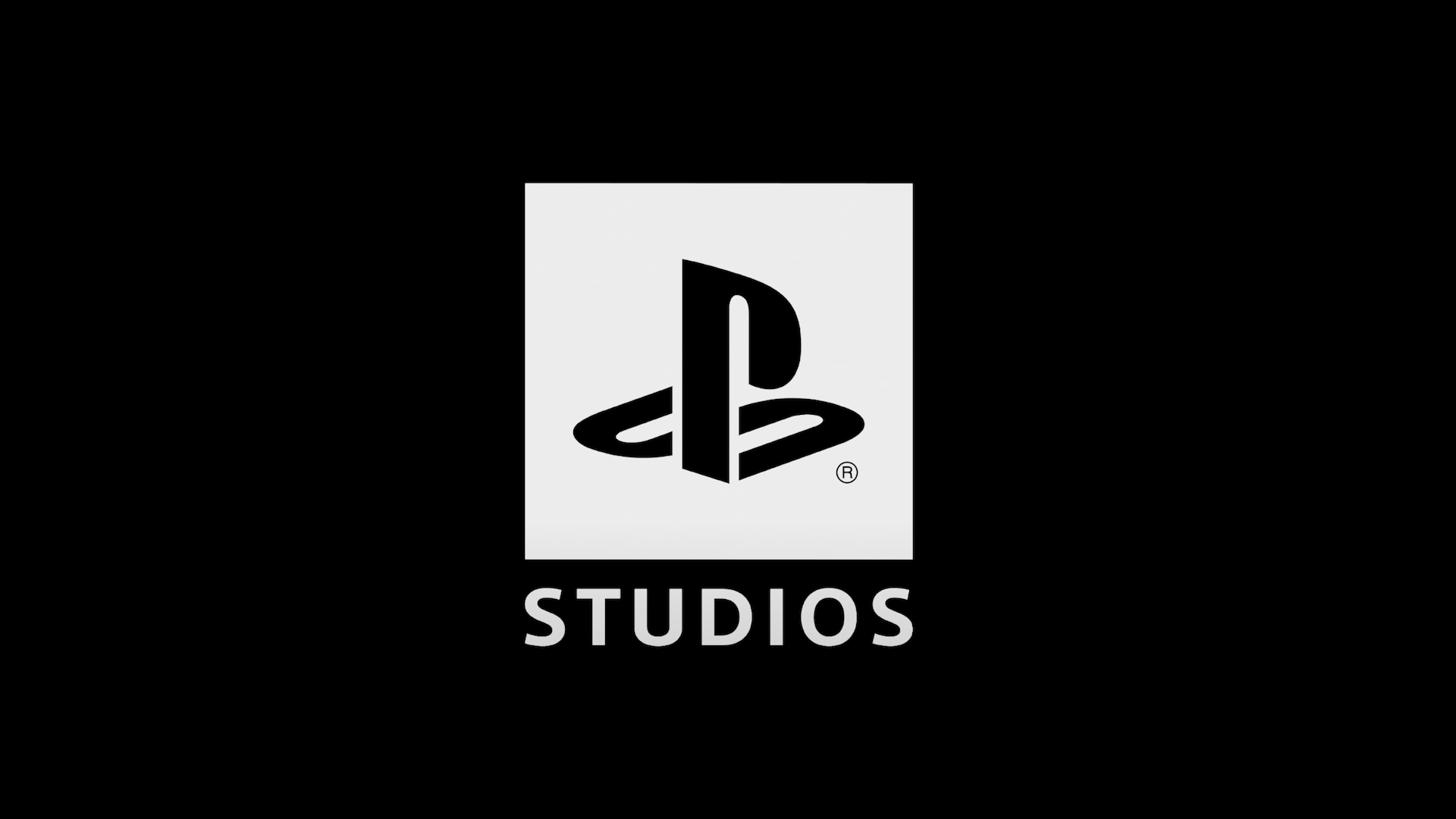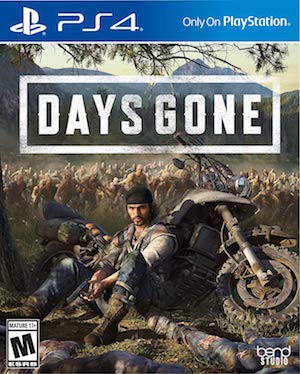
Among the many, many revelations that came out of Jason Schreier’s recent report on Sony Worldwide Studios’ inner workings, one of the ones that seems to have gone down most poorly with many PlayStation fans has been the one regarding Days Gone – or specifically, the lack of future it may have from here on out.
Launching in 2019, Days Gone was Sony Bend’s first new IP in quite a while. Although it ended up being their most successful game, reviews for the title were decidedly mixed at launch. This came down to a host of issues – the game’s lack of technical polish (always surprising for a Sony first party game), its relative lower quality compared to other PlayStation Studios games in the last decade or so, its rather generic and bland premise that it never does as much with, and despite some interesting systemic conceits, it playing it mostly by the book. All of these problems ended up making this the worst received of the “big” flagship Sony first party games. Although you could look at some of the smaller fare, such as Predator Hunting Grounds, to find games that had performed worse still, Days Gone was a premier game that was meant to stand side by side with titles such as Horizon Zero Dawn and Ghost of Tsushima (both of which in turn marked the ascension of their respective developers from making games that were merely good to making ones that count among the best titles of their respective years).
In spite of these relatively muted reviews – our own review for the game awarded it a 7/10, which is substantially lower than the scores we awarded Uncharted 4, Horizon, Bloodborne, The Last of Us Part 2, God of War, Spider-Man, Ghost of Tsushima, and Death Stranding – the game did well. It likely sold millions, and it garnered a vocal and fiercely passionate fanbase. I would also be remiss to not mention the fact that multiple post-launch updates added a fair bit of polish and functionality to the game that did improve its quality and merits by at least a little. It’s still not a game that can stand toe to toe with the other major Sony games of the last decade, but it was at the very least a much better game than the low-70s scores that it got at launch would indicate, thanks to those subsequent fixes.
It wouldn’t be unreasonable to expect a sequel to Days Gone in these circumstances. Most importantly, of course, it had sold well, and commercial success is after all the primary concern when new games are greenlit. As mentioned, it had a fiercely passionate fan following as well. Finally, of course, Sony has a history of several of its now major franchises and studios having started from relatively humbler roots. A major Sony studio such as Guerilla Games started out with Killzone, a game panned upon launch. While Killzone saw relatively better received sequels for a while, eventually Guerrilla ended up putting out yet another poorly received title in the series with Shadow Fall. Nonetheless, credit to Sony for still believing in them, because their next game ended up being Horizon Zero Dawn, which would go on to not only become their best received and bestselling title yet, but also a significant hit for Sony, and a game that would inform the direction their subsequent first party efforts would take in several important ways.
Then there is a franchise like Uncharted – yes, even the infallible Naughty Dog had a relatively rough start with Uncharted: Drake’s Fortune. Though received fairly well, it wasn’t exactly a game of the year contender (in fact, much like the PS3 itself, it was completely overshadowed by other major releases of its year, including Halo 3, Super Mario Galaxy, Metroid Prime 3 and Mass Effect). However, Sony, again, had the faith to stick with Naughty Dog, and their next game would be Uncharted 2, considered one of the best games ever made to this day. Uncharted 2‘s success would in turn lead to the recalibration of Naughty Dog’s development sensibilities, as well as the promotion of personnel, who would go on to deliver The Last of Us a few years later, which is to this day the most significant Sony first party game ever.
What I’m trying to say is that Sony has been known to give its developers a lot of leeway even if they don’t get it exactly right on the first go. They let those developers try again, and get a second shot at hitting it big. It was especially perplexing, when viewed in that context, that Sony has apparently chosen not to extend the same benefit of the doubt to Bend – especially when Sony’s current head of first party efforts, Herman Hulst, is himself a Guerilla Games alum, who rose to prominence following the incredible success of Horizon. Why is Days Gone not being given a chance when so many other Sony studios and franchises have?
The most important thing to remember here is, as always, context. The comparisons listed above, while fair, are also not 1:1 analogous. Giving Guerilla Games or Naughty Dog multiple chances in the PS3 or even early PS4 eras, when game development budgets were significantly lower, is a substantially different undertaking than giving Sony Bend another blank check in an era where games can cost tens of millions of dollars – if not hundreds – to develop, with years of time, money, and resources pooled into their production. Purely commercially speaking, for Sony, it made far more sense to let a developer have another shot after a relatively poorly received title back in the 2000s and early 2010s, when multiple games put together would probably not cost as much to make as a single one may now.
The other major factor to remember here, and this one is a far more intangible one and therefore harder to explain and harder to palate, is the broader brand alignment of PlayStation Studios that Sony wants, and how Days Gone may or may not fit into that vision. To put that in plain language, in the last few years, there has been a very clear attempt by Sony to develop a consistent, cohesive vision and fabric for its first party titles that extends across all its big hits. As much as people arguing on message boards online might want to convince you otherwise, this is not a bad thing at all. Brands spend millions of dollars and years to have an instantly recognizable and cohesive direction across their product line, which can be instantly associated with them by the average customer. Look at how hard Marvel has worked to have a template and aesthetic that is distinctly theirs, which moviewatchers can not only instantly, subconsciously identify with Marvel when watching their movies, but even extend to using as a general adjective for other movies and even TV shows and games. Describing TV shows or games or movies as “like a Marvel movie” has happened because Marvel has worked hard at establishing a very clearly delineated and recognizable aesthetic and direction for their products that can be summed up as “Marvel”. Their movies by definition have to have similarities, or “like a Marvel movie” would have no meaning as a statement – how would it, if every Marvel movie is different?
Sony has worked hard to have this kind of singular aesthetic and structure that can be recognized across all their games too. No, I am not giving any credence to the “Sony template” memes that people like to bandy about unironically, but there is a clear shared thread across flagship Sony games – story-focused single player third person action-adventure games. Back in the PS3 era, when Sony used to make a lot of different kinds of games with no clear commonality across them, there was no consistent vision or aesthetic tying them together – but today, that is clearly not the case. As I mentioned earlier, this is a good thing. It’s the kind of thing companies take years and obscene amounts of money to achieve, and Sony having achieved it is a very clear part of their overall goals. And Sony isn’t even the only company to have achieved this within the gaming industry – there is a very clear common aesthetic and design sensibility across all Nintendo games, for example, which is why “Nintendo game” can be used so effortlessly as a generic adjective.
But the point of me bringing this up isn’t just to say that Sony’s games have a consistent direction of being story-driven open world third person action-adventure games. Because if that was all it was, then Days Gone very clearly fits into quite literally every single one of those slots. No, there is another unspoken, but heavily implied, component to Sony first party games’ overall identity that Sony views as being integral – integral enough that it supercedes everything else, in fact. And that factor is “quality.”
See, Sony has actually indicated this several times – it views its flagship productions as big quality initiatives. These are games that not only do abundantly well with critics, but are also big winners come award season. This emphasis on quality helps Sony create an aura of prestige around their brand as a whole, contributing to the overall desirability of every new flagship Sony game simply for existing – because a new Sony game must be something to pay attention to, given how incredible every single one of their other titles has been. It also helps drive the desirability and narrative surrounding these games, creating system sellers out of them because the PlayStation ecosystem can lay claim to having a guaranteed stream of high quality award winning games that you simply cannot get anywhere else.
Quality is crucial to Sony’s vision. That’s what the whole software strategy is built on. That’s what the whole console strategy is built on, in fact. Because obviously, while Sony recognizes that the bulk of its console revenues and success comes from the average customer who buys a PlayStation to play Fortnite and FIFA, they also recognize that if Fortnite and FIFA is all their consoles had to offer, there wouldn’t be any reason whatsoever to pick PlayStation over competing propositions such as Xbox. Sony’s entire console business relies on them selling their platform as an attractive proposition for third party publishers to sell their software on as a de facto option, based on a massive, engaged install base. But that massive and engaged install base comes from Sony consistently putting out quality exclusives that compel people to buy into PlayStation, and keep engaging with the platform. That can only happen if those quality exclusives are, in fact, quality. If the average customer walks into the store and has an option between two identically specced out and priced consoles, both of which can play Fortnite and FIFA, but one which can also play a stream of award winning games that the other cannot, they are significantly likelier to pick the option with those award winning games.
So as far as Sony’s big flagship productions go, the games have to be quality now. Where back in the PS3 era, when Sony’s whole approach to first party development and production was far more scattershot, titles with more muted reception such as Resistance: Fall of Man or God of War: Ascension may have made sense, they do not in context of where Sony is going today. While their smaller games such as Destruction AllStars or Concrete Genie can get by with not doing as well – their big tentpole releases don’t get that same leeway. They have to be prestige products.
Days Gone was not a prestige game. It had a fan following, it sold well, but it wasn’t a contender in the awards season, and its reception is still the worst of any big Sony first party game since The Order: 1886. There is, of course, every chance that Sony Bend may have been able to improve upon it significantly with a sequel – but to Sony, the brand itself probably doesn’t hold as much value, and Sony Bend was better off doing something new. Especially because Sony Bend’s learnings as a developer and as artists aren’t only applicable to Days Gone. No matter what they do next, they will have learned from Days Gone and will be able to improve upon it significantly with that next game. Sony Bend still gets to put out a new IP that will probably be their Horizon or Ghost of Tsushima moment – because they will have learned from Days Gone, and the feedback it got.
All of this is to say that it’s unlikely Sony actually does a sequel to the game any time soon. Of course, I can’t speak in absolutes – I’m not privy to Sony’s inside workings, and even Sony themselves can probably not say with surety whether or not they will still be unwilling to greenlight a sequel to the game in, say, ten years’ time. But honestly, looking at the graveyard of very literally dozens of fan-favorite Sony games and franchises that have received no follow-ups or even acknowledgement from Sony in years (if not decades), I don’t think it’s unreasonable to assume that if it doesn’t get a sequel now – which it’s all but confirmed at this point that it won’t – then it never will.
Who knows, though. A PC port of Days Gone is coming up in a few weeks, and for all we know, the game has a renaissance of reception there that makes Sony reassess its stance with respect to the game, and makes it reconsider giving it a sequel some day (or at least keeping the option open). Or maybe a huge Days Gone fan one day takes over Sony’s first party strategy, and they make sure a sequel is greenlit. The options are limitless, and it’s impossible to say with total certainty that there will never be a Days Gone sequel again. But based on the facts we have on hand, as well as a proper assessment of Sony’s priorities as a publisher and as a platform holder, the prospect of there being a Days Gone 2 any time soon – if ever – is fairly non-existent.
Note: The views expressed in this article are those of the author and do not necessarily represent the views of, and should not be attributed to, GamingBolt as an organization.








